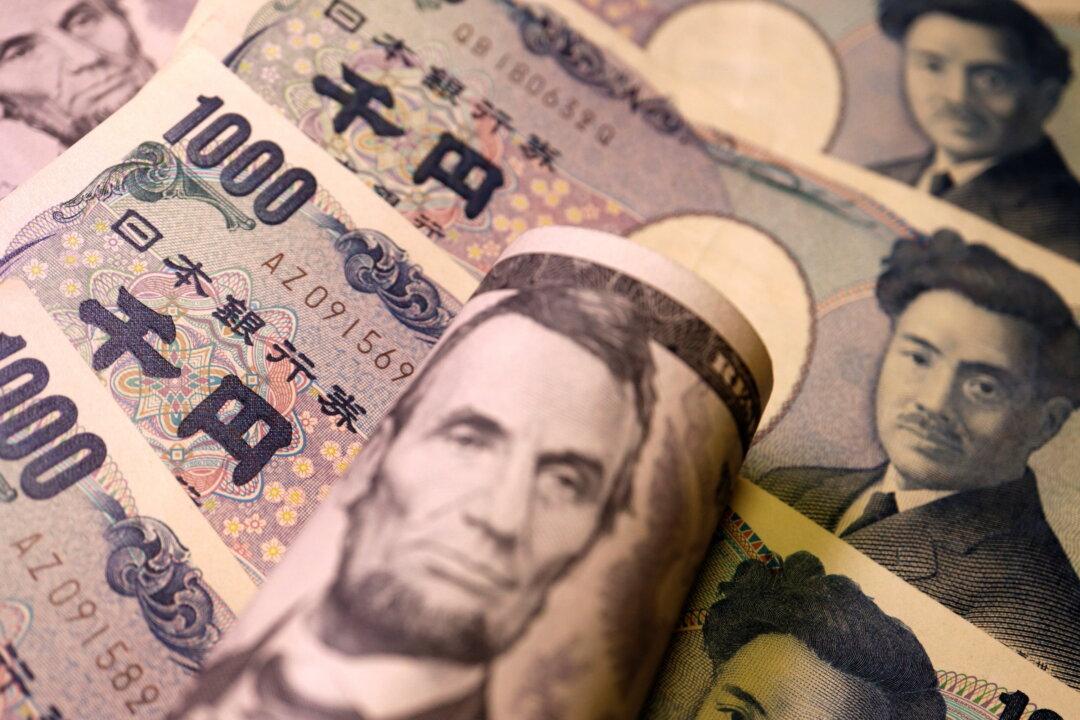LONDON—The U.S. dollar edged back toward September’s multi-year highs on Tuesday as worries about rising interest rates and geopolitical tensions unsettled investors, while the yen hovered near the level that prompted last month’s intervention.
Strong U.S. labour market data and an expectation that Thursday’s inflation figures will remain stubbornly high have all but dashed bets on anything but high interest rates through 2023 and are driving the dollar back toward the 2002 peak hit last month.





